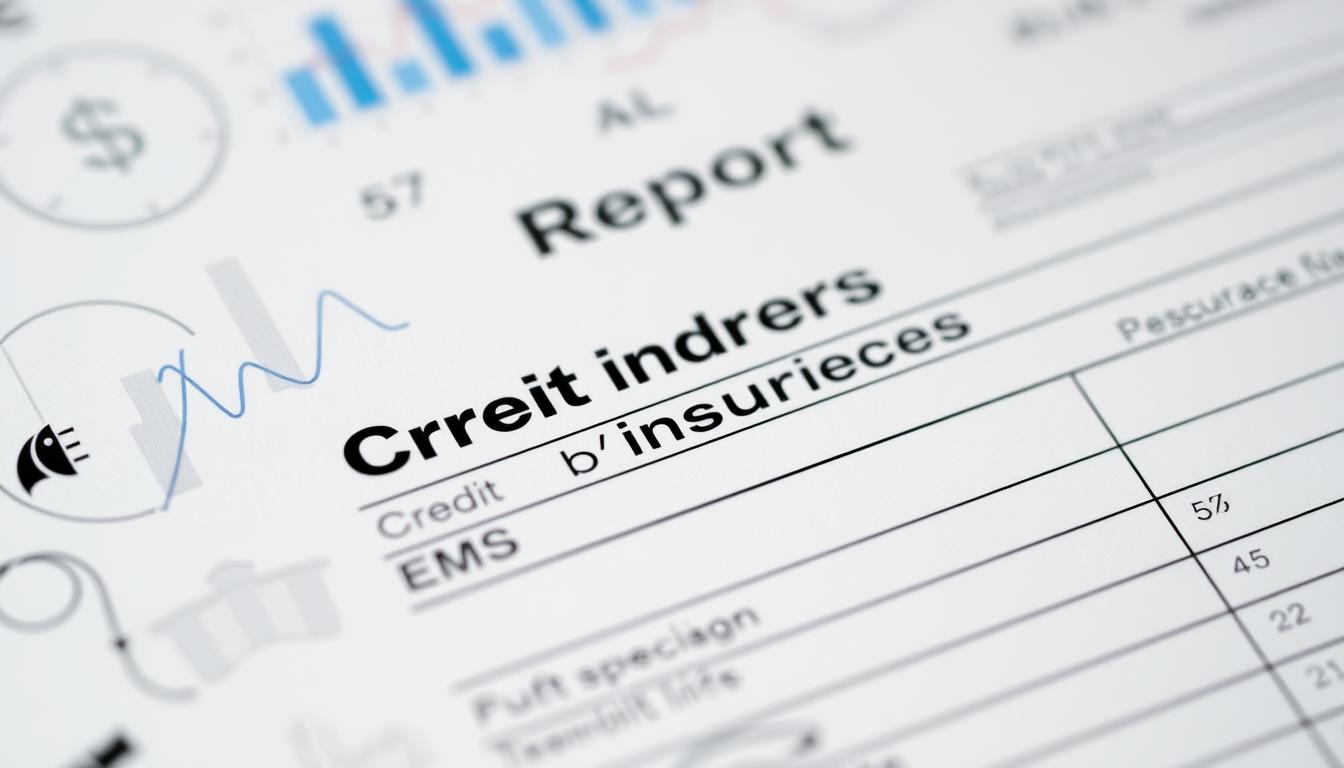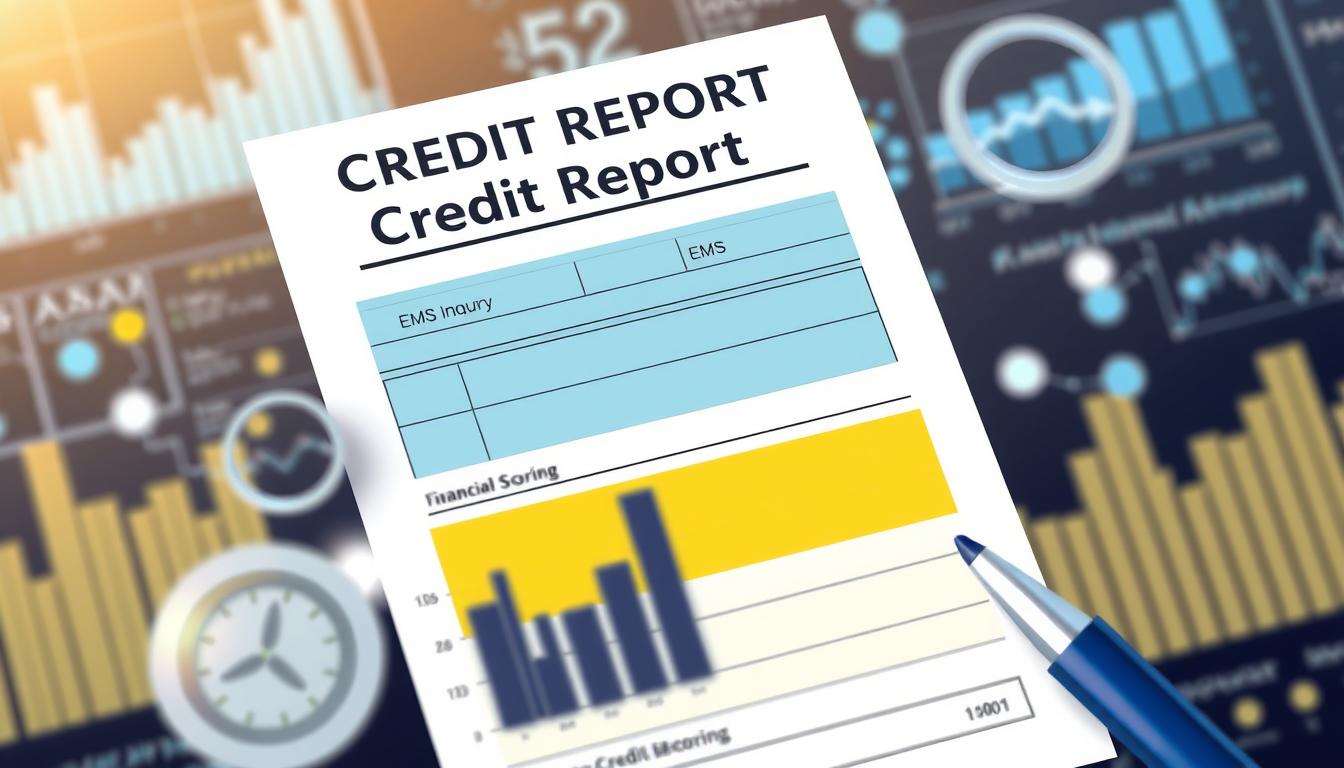Job applications might include an unexpected request: an EMS inquiry on your credit report. This can raise questions about its impact on your credit score and hiring process. Let’s explore EMS inquiries, their purpose, and potential implications.
We’ll help you understand this process better. With this knowledge, you can navigate the job application journey more confidently. You’ll be prepared for any credit-related questions that may arise.
Key Takeaways
- An EMS inquiry is a type of credit report check conducted by employers during the hiring process.
- Employers use EMS inquiries to assess an applicant’s financial responsibility and creditworthiness.
- EMS inquiries can have a short-term impact on your credit score, but their long-term effects are minimal.
- You have the right to review your credit report and dispute any inaccuracies before an employer conducts a credit check.
- Employers must follow the Fair Credit Reporting Act (FCRA) when conducting employment credit checks.
What is an EMS Inquiry on Credit Report?
Employers may check your credit report during job applications. This is called an “employment screening” or EMS inquiry. It’s a hard credit inquiry that appears on your credit report.
Understanding Credit Report Inquiries
Credit report inquiries show who’s accessed your credit information. These are split into hard inquiries and soft inquiries.
Types of Inquiries: Hard vs. Soft
- Hard Inquiries: These happen when lenders review your credit for loans or credit cards. They can slightly lower your credit score temporarily.
- Soft Inquiries: These occur for informational purposes, like pre-employment credit reviews. Soft inquiries don’t affect your credit score.
An EMS inquiry is a hard inquiry on your credit report. It can have a short-term impact on your credit score.

Why Do Employers Conduct EMS Credit Checks?
Employers often perform credit checks on job applicants. This process, called an “EMS inquiry” or “employment credit verification,” assesses a candidate’s financial responsibility. It helps employers gauge an applicant’s decision-making skills and trustworthiness.
Some jobs require high levels of financial acumen. These positions may involve handling sensitive information or financial responsibilities. Credit history employment screening can provide insights into a candidate’s money management abilities.
An employment credit verification reveals financial management practices and overall stability. This information helps determine if a candidate fits the role and company’s needs. It can impact the organization’s financial well-being.
“A person’s credit history can be a strong indicator of their level of responsibility and decision-making skills, which are essential for many roles within an organization.”
The use of credit check for employment is a complex topic. It raises concerns about privacy and potential discrimination. Employers must carefully consider legal and ethical issues when using this practice.

The Impact of EMS Inquiries on Your Credit Score
EMS credit checks for job applications are hard inquiries. They can lower your credit score by a few points. However, the long-term impact is small if you manage your finances well.
Short-Term Impact
EMS inquiries can cause a brief 5 to 10-point drop in your credit score. Hard credit checks appear on your credit report for other lenders to see. Multiple hard inquiries in a short time can have a bigger effect.
Long-Term Considerations
The impact of EMS inquiries on your credit score is usually brief. Your score will recover if you manage your credit responsibly. Lenders typically consider your overall credit history, not just one inquiry.
To reduce the impact, maintain a healthy credit profile. Pay bills on time and keep credit utilization low. Avoid unnecessary credit applications to protect your credit score.

ems inquiry on credit report
An EMS inquiry on your credit report shows an employer has reviewed your credit history. It’s part of a background check or pre-employment screening process. This type of inquiry provides employers insight into your financial responsibility.
EMS inquiries are different from typical hard inquiries for credit cards or loans. They’re considered soft inquiries and don’t directly impact your credit score.
- EMS inquiries evaluate a job applicant’s credit history to assess financial responsibility.
- They’re often part of a comprehensive background check, including employment history and criminal records verification.
- Employers use this information to determine an applicant’s suitability for a particular job.
EMS inquiries don’t affect your credit score directly. However, the information in the credit report may influence hiring decisions.
Maintaining a healthy credit profile is crucial before applying for jobs requiring credit checks. Address any negative items on your report to improve your chances.

“Understanding the impact of EMS inquiries on your credit report can help you navigate the job application process with confidence.”
Preparing for an Employment Credit Check
Before applying for a job with a credit check, review your credit report. Address any negative items or mistakes. This can smooth out the screening process and boost your job chances.
Reviewing Your Credit Report
Get your credit report from Equifax, Experian, and TransUnion. Check each report for errors or negative info that might hurt your credit profile.
Look for wrong account details, late payments, or collections that aren’t yours. These issues can impact your credit score and job prospects.
Addressing Negative Items
- If you identify any negative items on your credit report, take immediate action to address them.
- Dispute any inaccurate information with the credit bureaus, providing supporting documentation to substantiate your claims.
- Work on improving your credit score by making timely payments, reducing outstanding balances, and addressing any negative information on your credit report.
Take steps to review your credit report and fix any problems. This prep work can help you present a good financial profile to potential employers.
| Action | Benefit |
|---|---|
| Review credit report for job application | Identify and address any negative items or inaccuracies |
| Dispute inaccurate information | Improve credit profile and credit history employment screening |
| Improve credit score | Enhance chances of passing employment credit check |
Your Rights Regarding Employment Credit Checks
You have important rights during employment credit screening. Employers must follow legal guidelines. You can dispute any inaccurate information on your credit report.
Employers need your written consent before checking your credit. They must clearly disclose that a credit report will affect hiring decisions. This ensures you’re aware of the pre-employment credit review process.
If an employer denies you a job based on your credit report, they must inform you. They’ll provide a copy of the report and explain your rights. This lets you review the report and challenge any errors.
You can get a free annual credit report from the three major bureaus. This helps you monitor your credit and fix issues before job applications.
Knowing your rights is key for pre-employment credit review. Stay informed to protect your financial info and job prospects.
Best Practices for Employers Conducting Credit Checks
Employers must follow the Fair Credit Reporting Act (FCRA) when doing credit checks. This law protects job applicants’ personal and financial information. Following these practices helps maintain compliance and promotes fair hiring.
Compliance with Fair Credit Reporting Act
Employers need written consent from job applicants before checking their credit reports. This consent should be on a separate document from other employment forms. Employers must also clearly state that a credit check may be done.
The FCRA sets rules for using and storing credit reports. Employers should develop a fair policy for using credit information in hiring. They should also train hiring managers on proper credit report use.
- Obtain written consent from applicants before conducting a credit check.
- Provide a clear disclosure about the credit check as part of the hiring process.
- Ensure compliance with the FCRA’s requirements for credit report usage and storage.
- Develop a consistent and fair policy for how credit information is used in hiring decisions.
- Train hiring managers on the appropriate use of credit reports and the FCRA’s provisions.
Following FCRA guidelines helps employers protect job applicants’ rights when doing credit checks for employment. This shows commitment to compliance with FCRA. It also builds trust and transparency in hiring.
Disputing Inaccurate Information on Credit Reports
Found errors on your credit report? You have the right to dispute them. Let’s explore how to correct these mistakes and protect your financial reputation.
Submitting a Dispute
Start by contacting the credit reporting agency (CRA) responsible for the error. Send a written dispute letter by mail or online. Clearly identify the inaccurate items and include supporting documents.
Following Up on Disputes
The CRA must investigate and respond within 30 days. They’ll contact the organization that provided the incorrect information. If unverified, the CRA must remove the item from your report.
Unsatisfied with the resolution? Escalate to the Consumer Financial Protection Bureau or file an FTC complaint. A credit repair specialist can also help navigate the process.
| Step | Action |
|---|---|
| 1. | Contact the credit reporting agency (CRA) responsible for the error and submit a written dispute letter. |
| 2. | Provide any supporting documentation to back up your claim of inaccurate information. |
| 3. | Wait for the CRA to investigate the dispute and respond within 30 days. |
| 4. | If the dispute is not resolved to your satisfaction, escalate the issue to the CFPB or file a complaint with the FTC. |
| 5. | Consider consulting with a credit repair specialist for further assistance. |
These steps will help you effectively dispute errors on your credit report. Your financial standing deserves an accurate reflection in your credit history.
Conclusion
An EMS inquiry on your credit report can affect your job applications. Review your credit report regularly to spot and fix any errors. This ensures a fair assessment during employment screening.
Know the difference between hard and soft credit inquiries. Understand your rights for employment credit checks. This knowledge will help you navigate the process confidently.
Employers should follow the Fair Credit Reporting Act. This keeps the credit screening process transparent and ethical.
Job seekers and employers can work together on ems inquiry on credit report issues. Understanding credit report inquiries and employment credit screening leads to fair outcomes for everyone.

